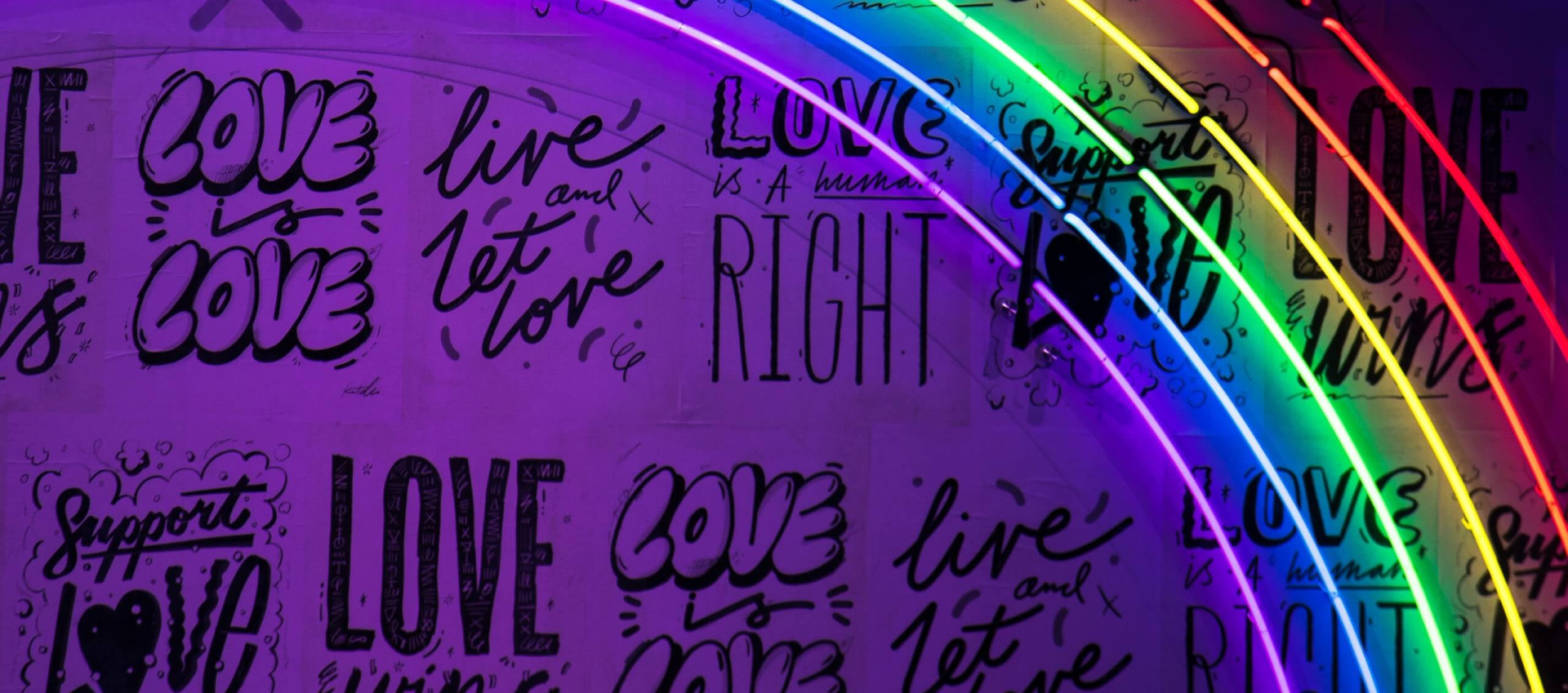Demonstrating Allyship by Respecting Queer Spaces
LGBTQ allies can demonstrate support for the community by learning about and respecting the history and importance of queer spaces.
Share
Two years ago I was asked to write a blog about my thoughts on Pride month. I discussed how companies that change their logos to rainbows in the month of June should make efforts to actually support the LGBTQ community and not just use Pride month as a marketing opportunity. Since that post, I am often asked how allies can support the LGBTQ community. I had an experience recently that prompted me to write this post on an important way straight, cis-gendered individuals can be better allies.
Perhaps the most well-known moment in American LGBTQ history is the riots at the Stonewall Inn. In June of 1969, the Stonewall Inn, a gay bar, unique in that it was welcoming to transgendered clientele, was raided by police. Patrons were arrested for possessing bootleg alcohol and violating a state statute against wearing “gender-inappropriate” clothing. This sparked riots against the police and galvanized LGBTQ activism.
The Stonewall riots demonstrated how important queer spaces are to the LGBTQ community. In 2021, they are just as important to us. Straight, cis-gendered people may take it for granted that they can be their authentic selves and demonstrate their affection for their partners in public spaces without fear of ridicule, outright persecution, or violence. Most of us in the LGBTQ community do not have that luxury. Even in the most welcoming environments we frequently code-switch and still feel residual anxiety about how our relationships are perceived.
In the straight community, the default is to always assume other people one meets are also straight. Queer spaces provide the LGBTQ community a place we can go to feel safe from violence and ridicule and to lower the psychological defenses we erect with great effort. They also provide us an opportunity to meet other people within the community.
Code-switching originally referred to the practice of switching from one language or dialect to another based on social context, but it has come to refer to when members of minority groups shift their behavior, speech patterns, vocabulary, and mannerisms to align with those of white, straight, cis-gendered individuals. When I am at work or out in public, I speak deeper than I naturally do, change my posture, use my hands less when I speak and do other things of this nature. In some instances, I do this to be taken more seriously by coworkers or clients, but in other instances, I do it because I don’t feel safe. Regardless of why people code-switch, it requires mental effort and awareness and can be exhausting. When in a queer space, code-switching isn’t necessary.
Queer spaces go beyond just “gay bars”. Queer spaces can include coffee shops, community centers, or intramural sports leagues. These spaces are usually easily identifiable, but there are also less formal queer spaces like neighborhoods or portions of public spaces (e.g. beaches, libraries) known to be friendly to and mostly frequented by the LGBTQ community.
Near constant fear for one’s safety, hearing slurs thrown at you for being yourself, and code-switching is all psychologically draining and can have lasting effects on our psychological well-being. Queer spaces offer a respite from this and provide a safe space to bond with others, share experiences, and/or just have fun with defenses down. Queer spaces cannot achieve this if they are not respected by the straight, cis-gendered community, however.
Queer spaces offer a respite and provide a safe space to bond with others, share experiences, and/or just have fun with defenses down.
Straight, cis-gendered allies are very important to increased acceptance of the LGBTQ community, and we welcome allies into most queer spaces. What I ask of our allies is that they enter queer spaces as friends and allies and not for selfish purposes. When you go to a gay bar, are you there to support your LGBTQ friends, or are you there to be entertained? When you take your family to the beach and set up in the queer area, are you doing it to engage with our community or is it just more convenient?
As I stated in my previous Pride month post, allyship is more than just waving a rainbow flag. Actions and intentions are important. We ask that our allies respect queer spaces. Every other space is by default a straight space, so entering queer spaces for any other reason than allyship demonstrates entitlement that can diminish or completely destroy the protective atmosphere for which queer spaces exist. Our allies can display support and respect for queer spaces in a number of ways. If you are going out for the night and the majority of your party is straight, avoid formally designated queer spaces.
Learn more about where you live and where the informal queer spaces are located. Many queer-oriented community centers offer services and support for LGBTQ youth that may have been kicked out of their homes and need a safe place to go. Consider donating to one of these centers in your area.
Though LGBTQ acceptance has increased in recent years, we are a long way from us all feeling completely safe and accepted everywhere we go. For that reason, queer spaces will remain important. We ask that our straight, cis-gendered allies help us protect these spaces.
Check out our other blogs on Diversity and Inclusion.









